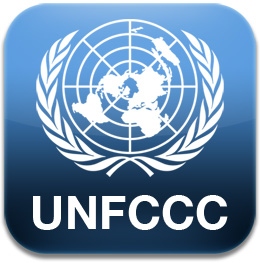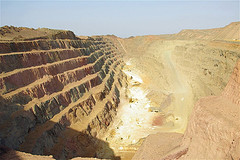
A Window of Opportunity Opens in the International Climate Talks
Since the collapse of the 2009 Copenhagen conference, much of what has gone on at the negotiating sessions of the UN Framework Convention on Climate Change (UNFCCC) has slipped off the radar of both public and political attention. But a new chapter in the international climate change negotiations begins this year – and could be a unique moment in efforts to craft international agreement on how the world will collectively attempt to slow global climate change.

India and China in Central Asia: different game plans for securing energy
The much hyped energy rivalry between India and China has seemingly played a part in the new great game in Central Asia. Popular media laments India’s sluggishness in following China’s footsteps. However, upon closer examination, the two countries aren’t quite playing the same game; their motivations and limitations with regard to Central Asia are different, a fact that is often ignored in surface comparisons.

Clock is Ticking: Canada must show Arctic leadership
In 2013, the Canadian government’s attention will once again be focused on the Arctic. One immediate priority is the upcoming decision by members of Stephen Harper’s cabinet on how to conduct an environmental review for aproposal to develop the Izok Corridor in Nunavut.
The plan – put forward by a company headquartered in Australia, but which is a subsidiary of Chinese state-owned resource giant China Minmetals – could bring billions of dollars into the region through its production of an estimated 180,000 tonnes of zinc and 50,000 tonnes of copper a year.
Such production, however, is also slated to bring the development of substantial new infrastructure, including open-pit mines, roads, bridges, air-strips and ports, as well as a processing plant.

Mark Thompson: The Cloud of Unknowing
This week, Mark Thompson, former Director General of the BBC, gave a series of three lectures as part of his Humanitas Visiting Professorship in Rhetoric and the Art of Public Persuasion, in honour of Philip Gould. These lectures were all centred around the theme of how the language and tone of public debate has changed in recent years in ways that have been detrimental to the cause of public understanding and has created a ‘cloud of unknowing’ within the wider public regarding matters of civic policy.

Montreal’s Legacy: How Ozone Success Shaped Climate Politics
Last June, the international environmental community gathered at the Rio+20 UN Conference on Sustainable Development set for hard-fought negotiations on sustainable development. This occurred with the backdrop of decades of questionable progress on global environmental issues like deforestation, biodiversity and climate change. Old hands lamented the missed opportunities and false dawns in the years since the 1992 Rio Earth Summit. Rio+20 needed to be a turning point — seen as a once-in-a-generation opportunity to find a new paradigm for sustainable development and kickstart a transition towards ‘green growth’ [1]. But while Rio+20 marked the marquee environmental summit of 2012, another much quieter – and perhaps more significant – anniversary takes place in a few days’ time, one that does much to tell us about …

Can the courts save Romania from selling its state owned industry on the cheap?
Shortly after my post on Romania’s paradox of plenty, the recently appointed Romanian Prime Minister came out with another mind-boggling announcement: the government had secretly sold Cupru Min, Romania’s largest copper mine, possessing over 60 percent of the country’s copper resources, to Roman Copper Corp., a Canadian Company, for a mere $200m (US). Quite pleased with the deal, the Prime Minister emphasised that the copper mine had been a black hole for the government, which it finally managed to sell for four times its value. These are misleading overstatements. While the precise value of Cupru Min is unclear, its worth is estimated to be between $6b and $14b (US), whilst the agreed profit sharing deal with Roman Copper only gives …

Should America Care About Energy Independence?
For the past forty years, the United States has been dependent on foreign oil. In the early 1970s, declining domestic production and America’s ever increasing thirst for oil made dependency on imports a necessity, whilst the OPEC Revolution and the 1973 Arab oil embargo seemed to also make dependency a serious threat to national security. Beginning with the formulation of Nixon’s “Project Independence”, the US has sought to reverse this worrisome position and restore what is usually imagined as a quasi-paradisiacal state of nature: energy independence. Yet, while president after president emphasised the importance of tackling the problem, US net oil imports kept rising, until they peaked in 2005 at about 12.5 million barrels of oil per day, 65% of …

On the line: in Romania, mining brings foreign investment at a cost
Many people instantly associate the ‘resource curse’ with images of African blood diamonds and mining-induced population displacement in Latin America. Few think Western countries are susceptible to such problems. But Romania, and other countries in Eastern Europe, are experiencing their own form of the paradox of plenty. Since the fall of communism Romania remains economically weak. Severely affected by the global economic crisis, its GDP fell more than 7% in 2009, forcing the Romanian government to request a $26 billion IMF emergency assistance package. Following this, the Romanian government adopted drastic austerity measures, resulting in a further 1.3% GDP contraction in 2010. Things are looking better since then; the economy strengthened in 2011. But Romania still lags behind its more …









